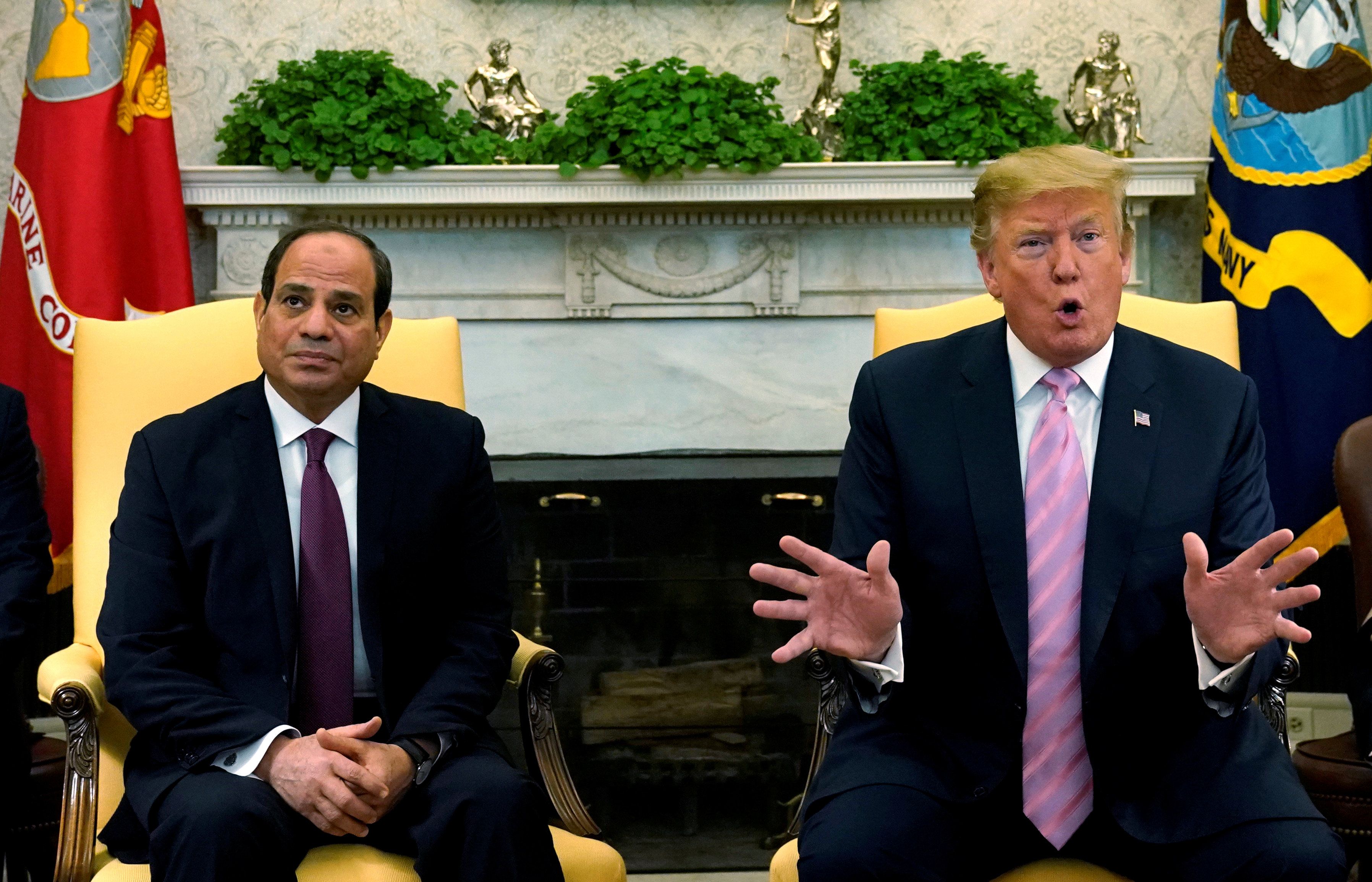May 03, 2019
The Trump administration said this week it wants to label the Muslim Brotherhood – one of the largest Islamist organizations in the world – as a terrorist group. That would outlaw financial dealings with the group and bar its members from entering the US.
No previous administration has taken this step, owing to the the group's loose organization, embrace of electoral politics, and a lack of clearly identifiable ties to militants. But Trump is for it, and his close allies in Egypt in Saudi Arabia would welcome the move. The decision would narrow the space for legitimate Islamic politics in the region.
Here's some background on what the Brotherhood is, who supports or opposes it, and why.
What is the Muslim Brotherhood? An organization of Sunni Muslims, founded in 1928 in Egypt, that wants to put Islamic law and ideals at the center of political and public life. It counts more than a million adherents in a patchwork of chapters and political parties across the Middle East.
Is it violent? Offshoots, such the Palestinian group Hamas, are considered terrorist groups by many countries, but the Muslim Brotherhood itself ostensibly foreswore violence half a century ago in favor of social work and efforts to win power through democratic means. Today, more hardcore groups like ISIS and Al-Qaeda often mock the Muslim Brotherhood for being too soft.
Partiesinspired by the Brotherhood are in parliament in Tunisia and Jordan. In Egypt, the Brotherhood won nearly half the seats in parliament and the presidency in elections following the the Arab spring of 2011. But after a contentious period in power, they were ousted in a 2013 coup led by General Abdel Fattah el-Sisi, who continues to rule Egypt today and has cracked down on the group ruthlessly.
Who supports or opposes it in the region? Sisi, along with the Gulf monarchies like Saudi Arabia, Bahrain, and the UAE, oppose the Brotherhood, seeing its call for democracy as a direct threat to their rule.
Turkish President Recep Tayyip Erdogan's own AK Party, meanwhile, draws inspiration from the Brotherhood and he supports it strongly, along with Qatar.
Why does Trump want to do this? Hawks within the administration have long supported the idea as a way to pressure Islamist groups more broadly, but it was reportedly at the recent urging of Mr. Sisi that the White House decided to revive earlier efforts to designate the Brotherhood as a terrorist organization. Riyadh would love the move, as would Moscow, which outlawed the group in 2003 over concerns about its influence on Russia's sizable Muslim population.
What would the consequences be? Justice, Pentagon, and State department officials worry both about the legality of the move and its effect on US allies in the region where the Brotherhood is involved in politics.
At the same time, marking the Brotherhood as a terrorist group could also dissuade Islamists from pursuing peaceful means to power, giving fodder to groups like ISIS, which say violent struggle is the only way forward for true believers.
CORRECTION: An earlier version of this article said that parties "affiliated" with the Brotherhood were in power in Tunisia and Jordan -- we have changed that to "inspired by."
More For You
Behind every scam lies a story — and within every story, a critical lesson. Anatomy of a Scam, takes you inside the world of modern fraud — from investment schemes to impersonation and romance scams. You'll meet the investigators tracking down bad actors and learn about the innovative work being done across the payments ecosystem to protect consumers and businesses alike. Watch the first episode of Mastercard's five-part documentary, 'Anatomy of a Scam,' here.
Most Popular
Think you know what's going on around the world? Here's your chance to prove it.
© 2025 GZERO Media. All Rights Reserved | A Eurasia Group media company.
